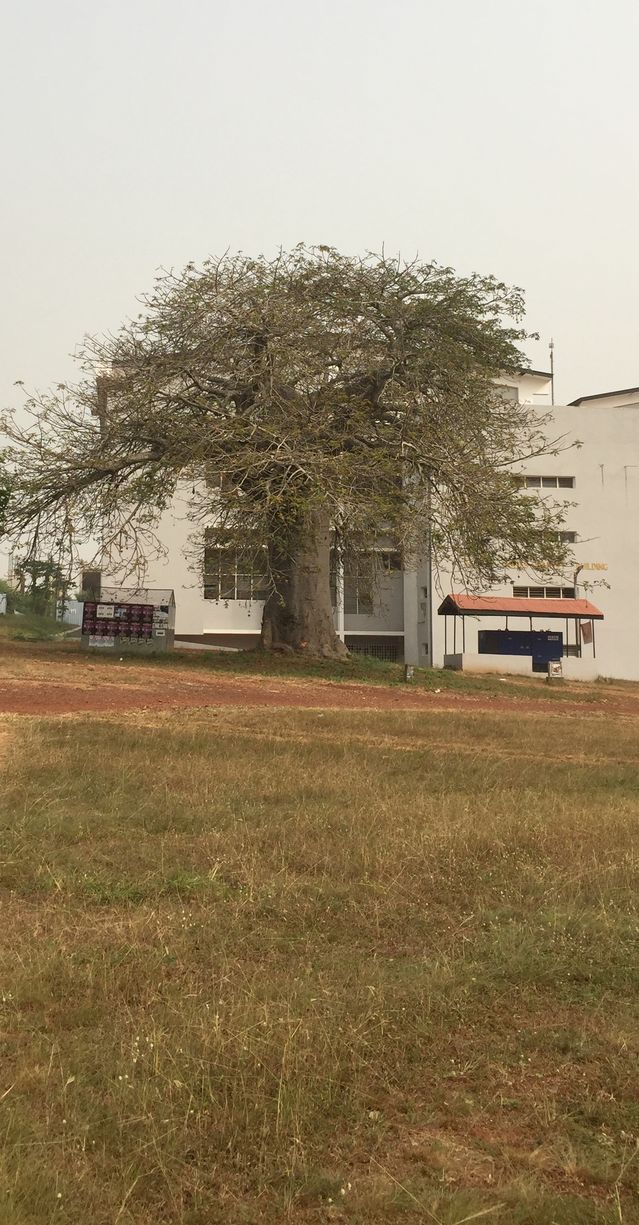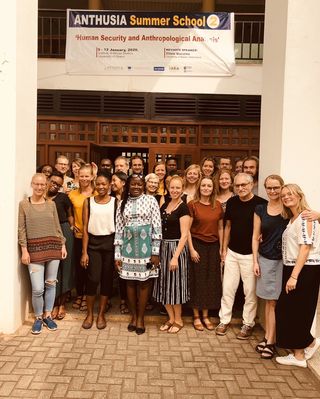It is commonplace to suggest that we live in troubled times. These days our world is saturated with social chaos. The spread of social media has produced a culture of speed that produces disruption, conflict, and social rot. Social media has the capacity to transmit global messages of ignorance and hate. As a student of contemporary social life, I wonder how in these times can anyone seek a measure of well-being. What is important in our lives? Do we have the time to reflect on the quality of life?
One of the central contributions of anthropology is to describe how other people live in the world. How do people whose languages and cultures differ from our own confront the challenges of contemporary life? Are these "Others" somehow able to extract a measure of sweetness in life? A recent trip to Ghana in West Africa reminded me of the importance of these central questions.
It had been a long time since I had last been in West Africa, and I approached my travel there with excitement, as well as apprehension. I was eager to leave behind, if for only a short time, the social, psychological, and political chaos of the United States, but was also apprehensive about what, after such a long absence, I might find in West Africa.
So, toward midnight I left the US from one of the more chaotic spaces in the world—JFK Airport—and headed to Accra, Ghana. Most of the passengers seemed to be Ghanaians headed home to visit family members. On the plane I sat behind an African American pastor, a woman looking forward to spending a week preaching to her Ghanaian brothers and sisters. As for me, I looked forward to participating in an academic program at the University of Ghana Legon's historic Institute of African Studies, founded by Ghana’s first president, Kwame Nkrumah.

I arrived in Accra and walked to the airport’s taxi space, which was outside. Accra’s mid-afternoon 90-degree heat and humidity grabbed me like an angry wrestler. Sweating profusely, I scanned the crowd looking for a sign with my name on it, hoping to find the driver for my ride to the Institute. I found no one. I tried to phone my contact at the Institute, but my battery had died. I had no local currency. In my hot, sweaty and exhausted state, my culture-of-speed mind raced. How would I get to my destination? Might I get stranded at the airport? I wandered about the taxi space. Any number of men, taxi drivers, and/or transportation arrangers, came forward with exorbitant offers. One man who sought me out said:
“Welcome to Ghana. Accra is the place to be.”
“I’m looking for my driver, but my phone won’t work.”
“Use mine.”
I hesitated.
“Better yet, give me his number and I’ll phone him for you.”
He arranged my pickup and I, slipping into a slower cultural mode, gratefully gave him some dollars—for much-appreciated service.
The driver finally arrived in a white University of Legon van and we left for the campus, a short ride—in distance—rom the airport.
“I am very sorry you had to wait,” the driver said. He was a chunky middle-aged man with a round face and a broad smile.
We entered a traffic-clogged highway.

“Is it always like this?”
The driver laughed. "Always."
Hawkers came up to our stuck-in-traffic van. They smiled and offered us water in sealed plastic bags, soft drinks, pineapples, chewing gum and cigarettes. It took us a very long time to complete the five-mile trip from the airport to campus, but no one seemed to mind.
By the time we arrived at the Yuri Guest Lodge more than one hour had passed, but the delay didn't bother me. My hosts received me warmly, showed me to my room and so began more than one week of wonderfully slowed paced experience. At the historic Institute of African Studies, I listened to lectures, taught a two-day writing workshop, and shared lunches with colleagues and students. In the evenings we went into Accra and heard music, ate wonderful West African food, danced and sang. We had entered another cultural universe full of conviviality, which in America and Europe is often in short supply.

That is not to say that cultural life in Ghana is superior to that in America and Europe. It is to say that the thousands of people—a few rich and many poor, some educated, some uneducated, some urban and some rural—I have met through the years in Ghana, Niger and Mali may have been relatively poor but they have been rich in life. They remember the past. They think often of their ancestors. Despite their very real hardships, they have been able to squeeze from the very real ordeals of West African everyday life, no small measure of well-being.
Yes, I’ve had Ghana on my mind lately. I may be in America now, but when I think about the exuberance and the conviviality of Accra’s streets, it gives me strength. These thoughts make me smile and say to myself, “there’s always a way around this problem." These thoughts make my life sweet. Yes, I have West Africa on my mind. We have much to learn from the people of Ghana, Niger, and Mali, from people who, despite their privations know how to celebrate life.
We in America and Europe would be wise to follow their example.




